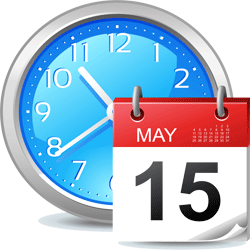Welcome to the final post of my Revolution Reborn Conference Recap series. (See Part 1: Opening Roundtable Part 2: Global Perspectives Part 3: The Revolution as Civil War Part 4: Violence and the American Revolution Part 5: Power and the American Revolution)
 Concluding Roundtable
Concluding Roundtable
Moderator: Brendan McConville
Discussants: Kathleen DuVal, Claudio Saunt, Thomas Slaughter, & Alan Taylor
Biggest Takeaway: Historians should view the Revolution as a great event that brought limited change to American society.
Biggest Question: (Posed by Brendan McConville) If scholars decenter the political and ideological from their narratives of the Revolution, are they still talking about the Revolution?
Panel Summary
DuVal stated that the Revolution Reborn Conference has shown that historians have achieved their first goal: A denaturalization of the nation-state central narrative. Today, scholars look to tell the story of the Revolution by focusing on the people left out of the Revolutionary promise.
Saunt discussed 4 themes and subjects that the conference did not discuss:
1. Environment (Hsiung’s paper excepted) 2. Biology 3. GIS technology and how historians can apply it to study the Revolution. 4. Digital Humanities and how historians can use the scholarship of that field to explore the Revolution.
Slaughter believes that a true synthesis of the American Revolution will discuss the Revolution as a process. During the Revolution the outcome of events seemed uncertain and the meaning of events emerged with hindsight. Historians should leave their readers with thoughtful questions about the Revolution rather than give blind answers to questions that no one has asked.
Taylor acknowledged that it was tough to be the last speaker, especially with Samuel Adams Beer Company sponsoring the concluding reception. Taylor believes that the Revolution was a retrograde movement that limited liberty. The Revolution created powerful contradictions rather than powerful resolutions. The Revolution’s moderate broadening of citizenship accompanied a narrowing that excluded anyone who refused the invitation to join the movement. Taylor believes that the Revolution remains more important than ever because it is embedded as selective memory in almost every contemporary debate.
Incidentally, Alan discussed his new book-in-progress, a sequel to [amazon_link id="0142002100" target="_blank" container="" container_class="" ]American Colonies[/amazon_link] that will discuss the Revolution. His story will run from 1750 to the 1820s and move away from the East Coast. Alan will situate the American Revolution in a global context.
Future Dates for Panels & Conferences on the American Revolution
 Mark your calendars! There are more American Revolution-focused panels and conferences coming up.
Mark your calendars! There are more American Revolution-focused panels and conferences coming up.
October 3-5, 2013: Omohundro Institute of Early American History & Culture, Montreal, Quebec, “The Quebec Act of 1774: Transnational Contexts, Meanings, and Legacies”
Winter 2014: Boston Area Early American Seminar, Massachusetts Historical Society, Boston, MA, Panel Discussion: “The Law and the American Revolution”
Spring 2015: Massachusetts Historical Society, Boston, MA, Tentative Title: “New Revolutions?” There will be a call for papers.
May 2015: Huntington Library, San Marino, CA, Tentative Title: “Revolutionary America: People and Power”
2016 or 2017: Williams College, Williamstown, MA, Conference Title To Be Determined
If you know of more American Revolution-focused events or if you would like to agree or engage with the points and questions raised by this conference please leave a comment.